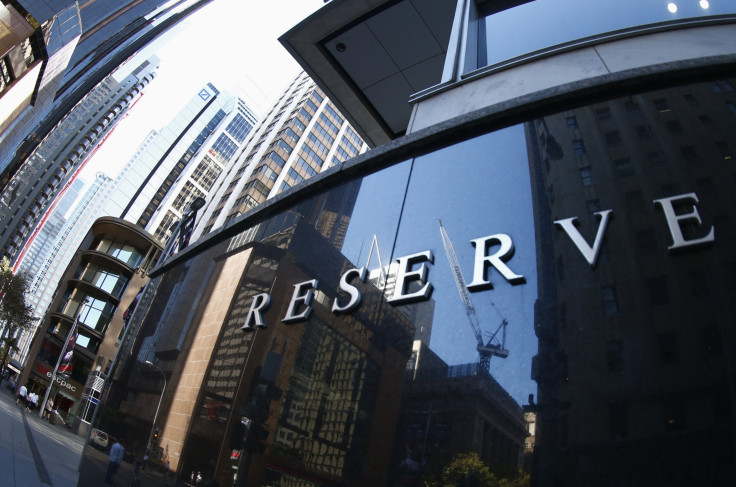Worsening Economic Outlook Prompts RBA To Slash Interest Rates; Dollar Drops, Shares Up

Because the country’s economy continued to grow at a "below trend pace," the Reserve Bank of Australia announced on Tuesday it would slash its benchmark cash rate by 25 basis points to a record low 2.25 percent. Citing the need to achieve balanced growth, the new rates take effect today, Feb 4. The announcement created a ripple effect, with the benchmark S&P/ASX 200 hitting a seven-year high, up 1.3 percent. The Australian dollar dropped to a six-year low, at least 1.8 percent from US$0.780 to US$0.765.
Australia’s economy grew well below expectations, a measly 0.3 percent in the third quarter of 2014, compared to the previous quarter. Year-on-year, official numbers said the uptick was just 2.7 percent. Data on the rate of unemployed, meantime, surged to hit a 12-year high of 6.3 percent in November. Also in December, Australia posted a deficit of A$436 million ($340 million).
"The available information suggests that growth is continuing at a below-trend pace, with domestic demand growth overall quite weak. As a result, the unemployment rate has gradually moved higher over the past year," Glenn Stevens, RBA Governor, said in a statement on Tuesday.
Stevens added the RBA decided on the rate cut to “add some further support to demand, so as to foster sustainable growth and inflation outcomes consistent with the target." The RBA noted its forecast output growth to remain sluggish as well as the jobless rate potentially peaking "a little higher than earlier expected."
Australia’s economy has been badly hurt by falling commodity markets, which in turn have hurt both company profits and mining investment. “The price of oil in particular has fallen significantly over the past few months. These trends appear to reflect a combination of lower growth in demand and, more importantly, significant increases in supply,” RBA said, noting the much lower levels of energy prices will act “to strengthen global output and temporarily to lower CPI inflation rates.”
So far, only the Bank of Queensland has announced it is passing on the rate cut. “We hope lenders will pass on the full rate cuts and more to their variable rate home loan customers because there’s no excuse not to pass on the full cuts,” Michelle Hutchison, an analyst at Finder.com.au, said. Lenders have kept 0.45 percentage points on average of cash rate cuts from variable rate home loan customers since the cash rate began to fall in November 2011.
To report problems or to leave feedback about this article, e-mail: e.misa@ibtimes.com.au





















